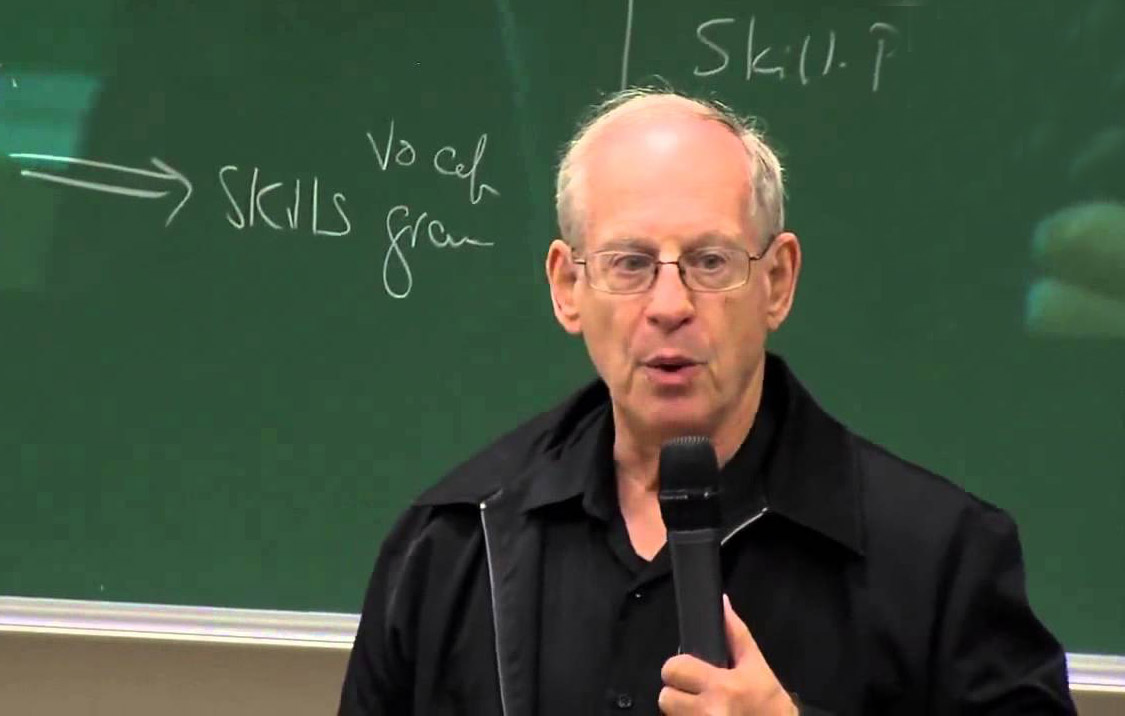Unraveling The Insights Of Steven Krashen: A Linguistic Pioneer
Steven Krashen is a name that resonates deeply within the fields of linguistics and education. His theories on language acquisition have not only shaped the way we understand the process of learning languages but have also provided educators with practical frameworks to enhance their teaching methodologies. Krashen's work has significantly influenced second language acquisition and literacy education, making him a prominent figure whose ideas deserve exploration and recognition.
Born in 1941, Steven Krashen has dedicated his life to understanding how humans acquire language. His passion for linguistics and education led him to develop several influential hypotheses, including the Input Hypothesis and the Affective Filter Hypothesis. These theories emphasize the importance of comprehensible input and emotional factors in the learning process, challenging traditional views and encouraging a more holistic approach to language education.
Throughout his career, Steven Krashen has authored numerous books and articles, which have sparked discussions and debates within academic circles and classrooms alike. His contributions have not only enriched our understanding of language acquisition but have also inspired educators to adopt innovative strategies that cater to the diverse needs of learners. As we delve deeper into his biography and key theories, we uncover the essence of Krashen's impact on the world of linguistics.
What is Steven Krashen's Biography?
Steven Krashen was born on May 14, 1941, in Chicago, Illinois. He pursued his education at the University of California, Los Angeles (UCLA), where he earned his Ph.D. in Linguistics. Krashen's career began as a teacher, but it was his research and writing that truly set him apart. He has held various academic positions, including serving as a professor at the University of Southern California. His extensive work in second language acquisition has made him a respected figure in both educational and linguistic communities.
| Personal Details | Information |
|---|---|
| Name | Steven Krashen |
| Date of Birth | May 14, 1941 |
| Education | Ph.D. in Linguistics, UCLA |
| Occupation | Linguist, Educator, Author |
| Notable Works | The Power of Reading, Principles and Practice in Second Language Acquisition |
What Are Steven Krashen's Key Theories?
Steven Krashen's theories on language acquisition have significantly shaped educational practices worldwide. His most notable contributions include:
- Input Hypothesis: This theory posits that language acquisition occurs when learners are exposed to language input that is slightly above their current proficiency level, often referred to as "i+1." This input should be comprehensible to the learner, enabling them to acquire language naturally.
- Affective Filter Hypothesis: Krashen suggests that emotional factors such as anxiety, motivation, and self-esteem can impact language acquisition. A lower affective filter allows for better learning, while a higher filter can hinder progress.
- Natural Approach: This method emphasizes the importance of communication over formal grammar instruction, advocating for a more immersive and engaging learning experience.
- Monitor Hypothesis: According to this theory, conscious learning acts as a monitor to regulate language output, but it is not the primary means of language acquisition.
How Did Krashen's Theories Impact Language Education?
Steven Krashen's theories have transformed the landscape of language education, particularly in how educators approach teaching English as a second language (ESL). His emphasis on comprehensible input has led to the adoption of methods that prioritize understanding and communication over rote memorization of grammar rules. This shift has resulted in more engaging and effective language learning environments.
Moreover, Krashen's focus on the affective dimensions of learning, such as motivation and anxiety, has prompted educators to create more supportive and inclusive classrooms. By acknowledging the emotional aspects of language acquisition, teachers can foster a positive atmosphere that encourages student participation and reduces fear of making mistakes.
What Are the Critiques of Steven Krashen's Theories?
While Steven Krashen's contributions to linguistics and education are widely recognized, his theories have faced criticism from various scholars and educators. Some argue that:
- The Input Hypothesis may oversimplify the complexities of language acquisition by focusing primarily on input while neglecting the role of output and practice.
- There is insufficient empirical evidence to fully support some of Krashen's hypotheses, leading critics to call for more rigorous research.
- His ideas may not be universally applicable across all contexts and learner types, as individual differences can significantly influence language acquisition.
How Has Steven Krashen Influenced Modern Language Acquisition Research?
Despite the critiques, Steven Krashen's work has undeniably paved the way for modern language acquisition research. His theories have inspired countless studies and have become foundational concepts in the field. Researchers continue to explore and build upon Krashen's ideas, examining the complexities of language learning in diverse contexts.
Moreover, Krashen's advocacy for reading as a crucial component of language acquisition has led to increased attention on literacy development in educational settings. His belief that reading for pleasure can enhance language skills has influenced curriculum design and teaching practices, making reading a central focus in language education.
What Is the Legacy of Steven Krashen?
Steven Krashen's legacy is one of innovation and influence in the realms of linguistics and education. His theories have encouraged educators to rethink traditional approaches to language teaching and have fostered a deeper understanding of the acquisition process. As we reflect on Krashen's contributions, we recognize the profound impact he has had on language education and the ongoing discussions his work continues to inspire.
In conclusion, Steven Krashen remains a pivotal figure in the study of language acquisition. His theories have transformed educational practices, encouraging a more holistic and engaging approach to language learning. As we continue to explore and build upon his ideas, we honor the legacy of a true linguistic pioneer.
Article Recommendations
- John Nettles
- How Long Is The Simon And Garfunkel Story
- Candice Bergen Health
- Wayans Family Tree
- Kelly Monaco
- Cameron Diaz P Diddy
- Rebecca Ferguson Son
- Filly Height
- Simon Cowell Is He Still Alive
- Jessica Alba


